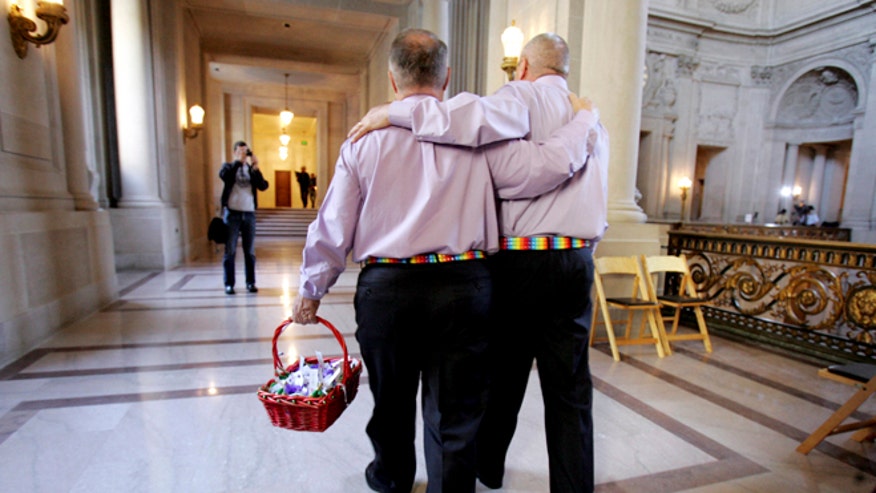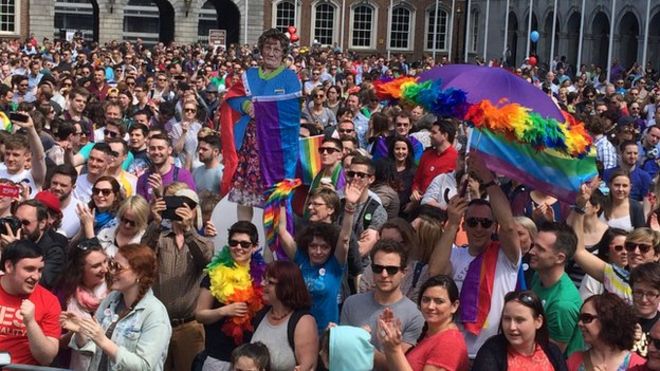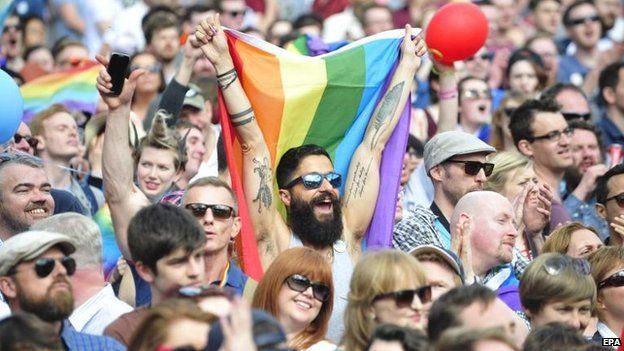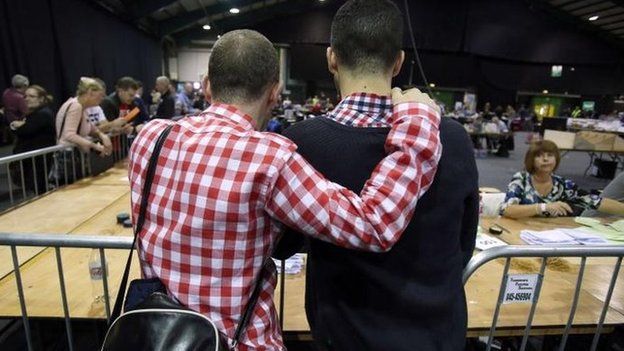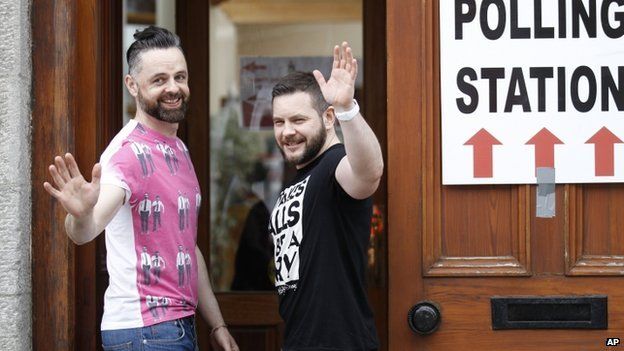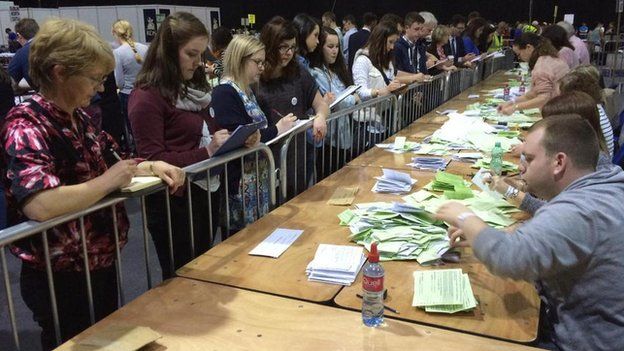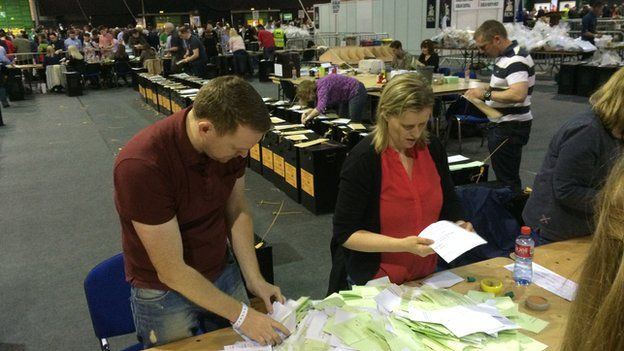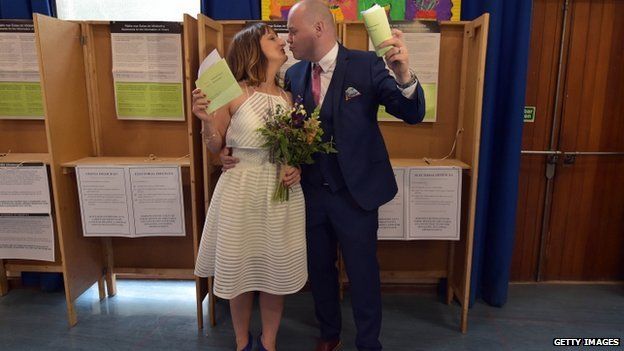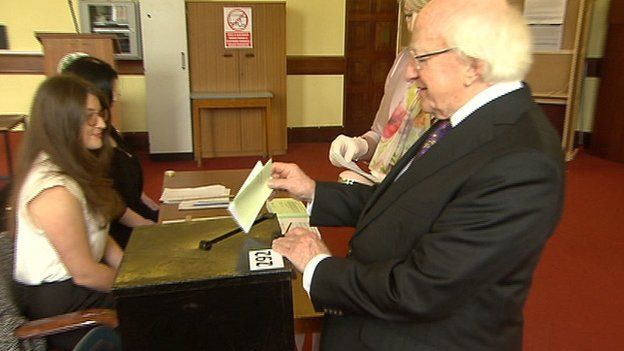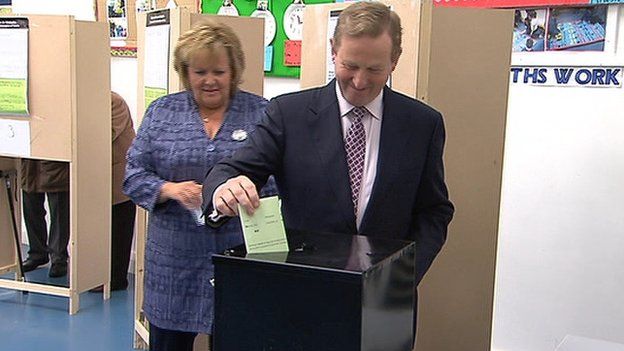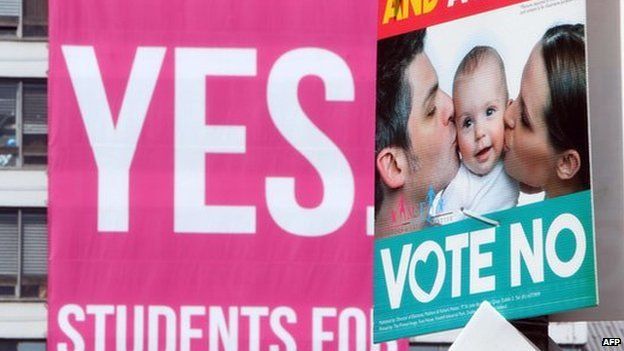Tidal wave of ‘out’ LGBT candidates run for political office in 2nd year of Trump presidency
WASHINGTON, D.C., January 16, 2018 (LifeSiteNews) – Gay news sites are reporting that a tidal wave of gay, lesbian, bisexual, and transgender (LGBT) candidates for various political offices will flood the United States in 2018.
For instance, forty-eight LGBT candidates have already announced they are running for various offices in Texas during this election cycle.
Perhaps the most high profile race is set to take place in Maryland, where convicted ‘transgender’ felon Bradley 'Chelsea' Manning is challenging Senator Ben Cardin for his seat in the United States Senate.
LGBT candidates, the majority of whom are running as Democrats, are hoping to benefit from President Trump’s current low approval ratings. Congress almost always loses seats to the opposite party of a newly elected president during the midterms.
“Annise Parker, CEO of the Gay & Lesbian Victory Fund, predicted LGBT candidates endorsed by the organization in 2018 ‘are going to do well,’” according to a report in the pro-LGBT Washington Blade.
“We’re in this business because we think our candidates are going to do well in any election, but we don’t see just a Democratic surge, we actually see a progressive surge across the United States,” continued Parker in the report. “We’re going to have more LGBT candidates than we have had ever in our history.”
The LGBT world has perhaps been emboldened by the unprecedented number of wins by transgender candidates last November, most of whom are biological men who claim to be ‘women.’ In Virginia, transgender journalist Danica Roem pulled a surprise victory over Republican incumbent Delegate Bob Marshall for his seat in the statehouse. In Minneapolis, transgender poet and activist, Andrea Jenkins, and in Palm Springs transgender Lisa Middleton won seats on their city councils.
The only female to ‘male’ transgender candidate to win was Tyler Titus, who won election to the Erie, Pennsylvania School Board.
Everything in Texas is bigger, including its LGBT candidate roll
Texas currently leads the country in declared LGBT candidates. At last report, candidates self-identifying as male are evenly split with those identifying as female. Of those, five are “transgender” and six are incumbents. There are currently 18 LGBT elected and appointed officials in the Lone Star State.
“One gay candidate for governor, Democrat Jeffrey Payne, became the subject of national media attention due in part to his status as the owner of a leather bar in Dallas,” states a report in Out Smart Houston’s LGBTQ Magazine. “Then an out lesbian Democrat, longtime Dallas County Sheriff Lupe Valdez, joined Payne in the governor’s race.”
“Valdez scored a surprise victory to become the nation’s first openly gay female Hispanic sheriff on the same night that George W. Bush secured a second term in the White House,” according to The Guardian. “She won re-election three times in Dallas County before announcing last month that she would resign to stand for Texas gove....”
A homosexual HIV/AIDS advocate, John Duncan, is running in Texas’ sixth congressional district, normally thought to be a Republican stronghold.
It should be noted that one-third of the LGBT candidates hail from Harris County, the most populous county in Texas. From 2010 to 2016, Annise Parker, now CEO of the Gay & Lesbian Victory Fund, served as mayor of Houston, the county seat.
In 2014, Parker famously demanded that Houston’s pastors turn their sermons over to the city. Houston citizens had filed a lawsuit to oppose the Houston Equal Rights Ordinance (dubbed “HERO”), which gave biological males the right to use female facilities within the city and endowed LGBT citizens with the same employee civil rights status as blacks or women. As part of the fact-finding portion of the lawsuit, the city demanded that pastors turn over “all speeches, presentations, or sermons related to HERO, the Petition, Mayor Annise Parker, homosexuality, or gender identity prepared by, delivered by, revised by, or approved by you or in your possession.”
The move was seen by many as an enormous threat to free speech and an assault on the principle of the separation of church and state. Lesbian Mayor Parker eventually backed off her heavy-handed demand that pastors turn over their sermon notes on transgender issues.
Homosexuals across America: turning the red, white & blue into 'rainbow'
Maryland's motto, Fatti Maschii Parole Femine, which appears on the state seal translates, “Manly deeds, womanly words.” That motto, already decried as sexist by the Washington Post, would dissolve into meaninglessness if certain LGBT Democrat candidates are elected to office this year, while also serving as a symbolic repudiation of the Catholic founding of the state.
Not only is transgender felon Bradley Manning seeking to unseat popular Democrat U.S. Senator Ben Cardin, homosexual Maryland state senator Richard Madaleno is campaigning to become the Democrats’ gubernatorial candidate, while transgender activist Dana Beyer vies to take Madaleno’s seat in Annapolis.
LGBT candidates are on the rise in other states as well.
“The race to replace retiring Rep. Niki Tsongas (D-Mass.) in Massachusetts’ 3rd congressional district is a veritable free-for-all of LGBT candidates,” according to the Washington Blade. “No fewer than 12 candidates are seeking the Democratic nomination, including three LGBT candidates. They’re Rufus Gifford, who’s gay and served as U.S. ambassador to Denmark in the Obama administration; Steve Kerrigan, who’s gay and ran to become Massachusetts lieutenant governor in 2014; and Alexandra Chandler, who’s transgender and a former Navy intelligence specialist.”
In New Hampshire, homosexual state representative Chris Pappas is campaigning for the seat being left open by retiring U.S. House of Representatives member Carol Shea-Porter.
Colorado also has a homosexual candidate running for Governor, Rep. Jared Polis. Oregon already has a bisexual, Kate Brown, occupying the Governor’s mansion.
In Florida, homosexual state representative David Richardson is running for Rep. Ileana Ros-Lehtinen (R-Fla.), the most pro-LGBT Republican in Congress while lesbian Lauren Baer, is running in Florida’s 18th congressional district.
Other LGBT candidates vying for a seat in the U.S. House of Representatives are Lesbian Minnesotan Angie Craig and New Mexican Pat Davis, currently serving as Albuquerque City Councilor.
In Arizona, self-identified bisexual U.S. House member, Kyrsten Sinema, wants retiring Republican Senator Jeff Flake’s seat. If she secures her party’s nomination, she could end up facing former Maricopa County SheriffJoe Arpaio.
But no matter who wins the Republican nomination for Flake’s seat, the CEO of the Gay & Lesbian Victory Fund, Annise Parker said, “it’s going to be a very clear pro-LGBTQ progressive candidate versus a right-wing ideologue.”

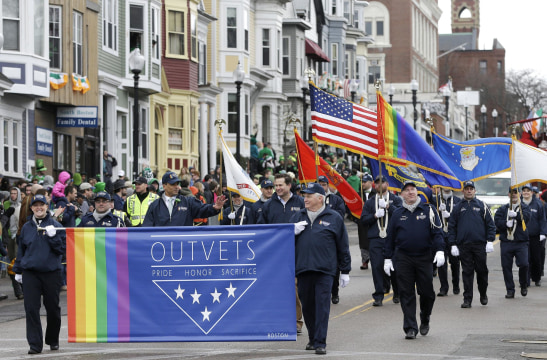 STEVEN
STEVEN 